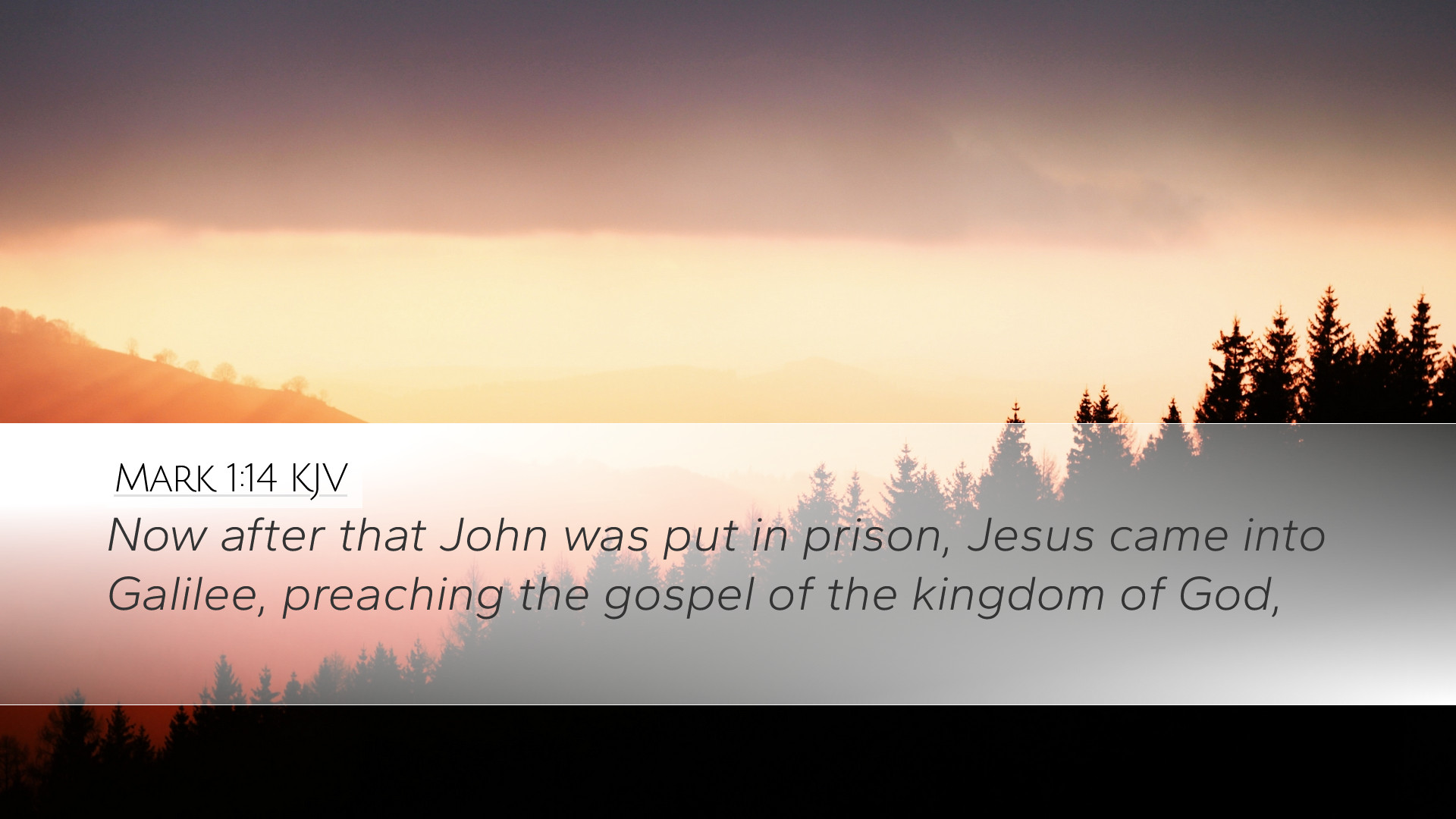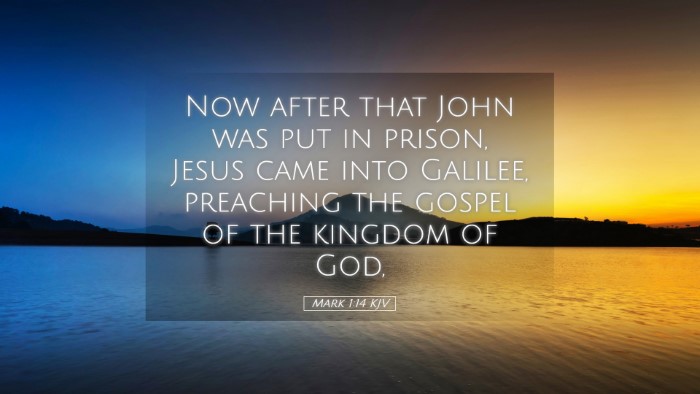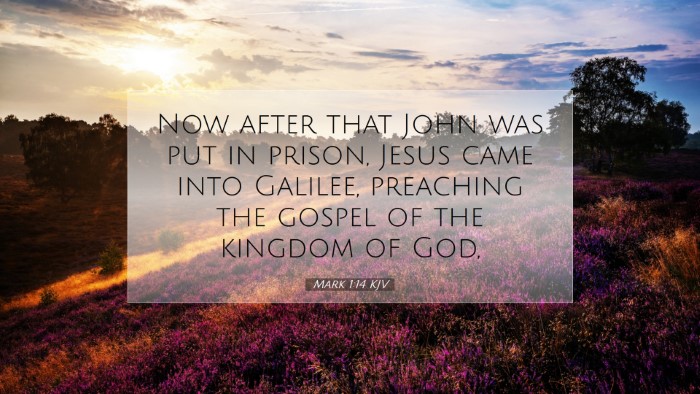Commentary on Mark 1:14
Contextual Overview
In the Gospel of Mark, Mark 1:14 serves as a pivotal moment in the narrative that transitions from the preparatory work of John the Baptist to the commencement of Jesus' public ministry. This verse encapsulates the significance of Jesus' proclamation and the arrival of the Kingdom of God amidst a socio-political ambiance fraught with Roman occupation and Jewish expectation.
Verse Analysis
"Now after John was put in prison, Jesus came into Galilee, preaching the gospel of the kingdom of God."
Historical Background
Matthew Henry emphasizes the chronological aspect where the imprisonment of John the Baptist marks a transition, indicating that the plan of God was unfolding, moving from John's preparatory ministry to the active ministry of Jesus. This imprisonment is significant as it reflects the rejection of God's messenger, setting the stage for the greater rejection Christ would face.
Jesus' Ministry Begins
Albert Barnes notes that Jesus' arrival in Galilee after John's imprisonment signifies both a geographical and spiritual shift. Galilee, often viewed as a district of commoners, symbolizes the accessibility of Jesus' message to all. The mention of Jesus "came into Galilee" indicates His intentional choice to start His ministry in a place that would later witness the fullness of His miracles and teachings.
The Proclamation of the Gospel
Adam Clarke delves into the meaning behind "preaching the gospel of the kingdom of God". Here, the term 'gospel' (derived from the Greek 'euangelion') is pivotal, as it denotes not just good news, but a proclamation of the kingdom's arrival, establishing Jesus as the central figure in God's redemptive plan. The concept of the Kingdom of God encompasses the reign of God in the hearts of believers and the call to repentance and faith.
Theological Implications
Both John’s and Jesus’ messages revolved around repentance, yet there is a distinction in their emphasis. John heralded the need for individual repentance, while Jesus focused on the Kingdom itself.
- Kingdom of God: The phrase 'kingdom of God' reflects God's sovereign rule and His active engagement in human history.
- Call to Repentance: Preceding Jesus' proclamation, repentance is foundational. The recognition of sin and the need for transformation is essential to entering the Kingdom.
- Accessibility of Jesus’ Message: The choice of Galilee for the initiation of His ministry underscores Jesus' desire to reach the marginalized and ordinary people.
Practical Application for Today’s Believers
This verse encourages contemporary believers to reflect on the accessibility of the Gospel. As Jesus stepped into the everyday realities of Galilee, so believers are called to meet people in their circumstances, sharing the liberating message of the Kingdom.
Evangelistic Role
In imitating Jesus, pastors and students of the Word are reminded that evangelism goes beyond mere proclamation—it also involves connecting with individuals where they are spiritually, emotionally, and socially.
Importance of Repentance
The call to repentance remains crucial. It’s a continual process in the life of a believer, fostering a genuine relationship with God and facilitating spiritual growth.
Community Engagement
Moreover, this passage asserts the importance of engaging with communities, particularly those that are disenfranchised. The church's mission should reflect Jesus' heart for the marginalized, offering hope and transformation in both word and deed.
Conclusion
In summary, Mark 1:14 not only marks the beginning of Jesus' ministry but also serves as a foundational text for understanding the nature of the Kingdom of God. The theologians’ insights provide depth to the interpretation, enriching the text with historical, contextual, and doctrinal significance. It is a clarion call for believers to engage in the mission of Christ, emphasizing the necessity of repentance and the inclusive nature of the Gospel message.


